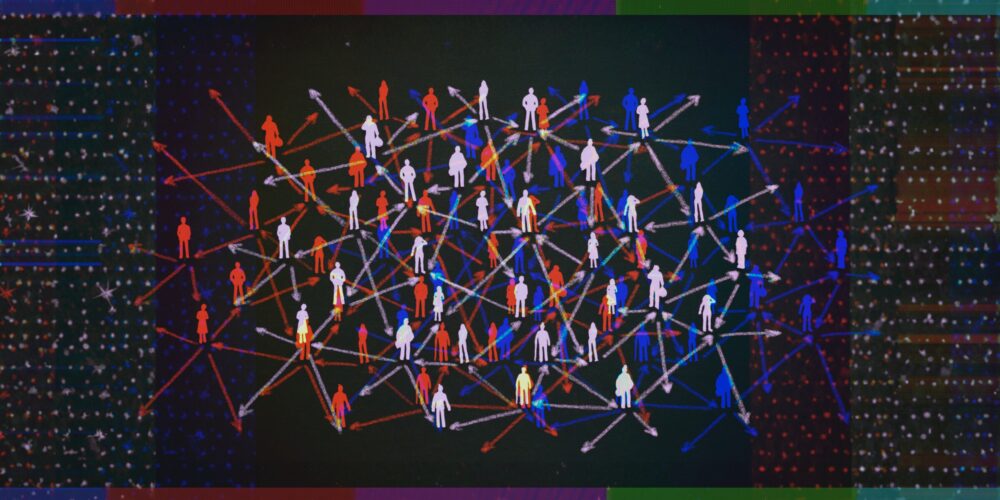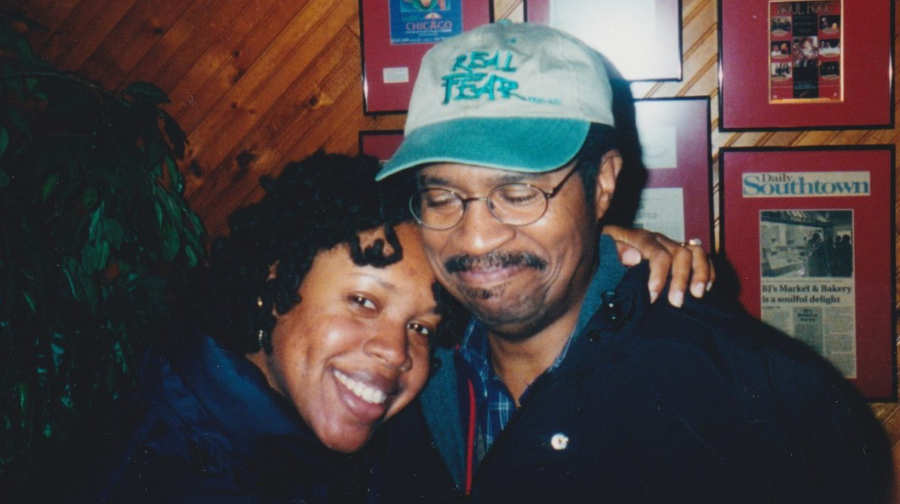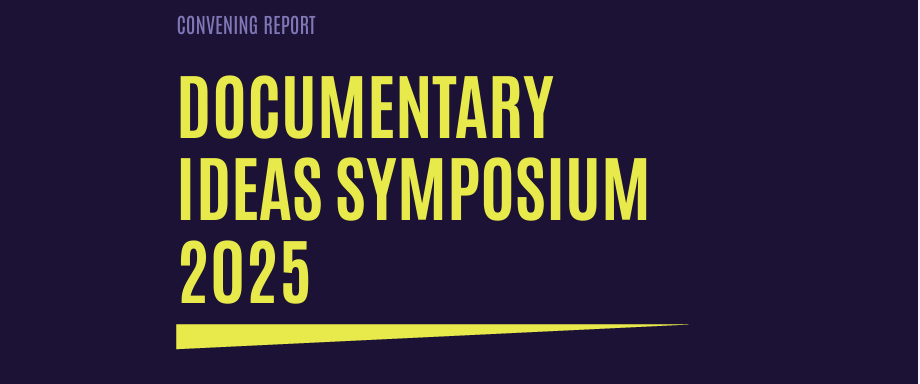
Commentary
Reclaiming the Public Interest?
Commentary

On October 28, 2023 at the age of 86, my dad passed away, unexpectedly. And in the wake of his death, I’ve been thinking a lot about story sovereignty. I’ve been wrestling with how to process Dad’s story in light of his complicated life; how to reconcile the prolonged adversity of our relationship with the beauty of our coming together in the last 3-5 years. There are so many things about the way my dad lived that I’ve discovered in the wake of his dying that give me pause, reduce me to tears, and fill my heart with empathy. And although I wish that he’d chosen to do many things differently, especially when it came to his health and well-being, I’m reminded that Dad’s choices were his to make, even if they ultimately impacted the quality of his life and the inevitability of his death. So I’m contemplating how to translate and pay tribute to my dad’s story – not in a film, but in my own mind – in a way that enshrines my dad’s agency, and honors his right to have his story told accurately and lovingly, with honesty and truth.
But context is so critical. Without it, accurate descriptions of a person, place, or thing can be interpreted as the whole truth, and three-dimensional human beings can be rendered as one-dimensional caricatures. It’s difficult to detect this fact if we are blinded by our own biases, and unwilling to do the work necessary to first confront and heal our own selves so that we can see ourselves, and then others, more clearly. This void of understanding is reflected all around us, particularly in the harmful narratives that persist, and that we are encouraged to believe, about people who believe differently, love differently, live differently, and most significantly, look differently than we do. For example, there’s a very specific way that the Hamas attack on Israel, and the resulting Israeli assault on Palestinian lives, continues to be framed. There are also numerous examples of stereotyping and cultural appropriation that exist within American, if not global popular culture. We are constantly bombarded with messaging that communicates harmful ideas about who deserves access to power, resources, privilege, and humanity that impact the vulnerable and marginalized the most. And within nonfiction storytelling, there are far too many documentaries about Black and other people of color; about members of the LGBTQIA community; and about Muslims, to name just a few groups, that are told by largely white filmmakers that seem more interested in demonstrating “truth” rather than the nuance that is always bound up in humanity.
Gratefully, the work I’ve engaged in for nearly four years with the Documentary Accountability Working Group (DAWG) helps me think about these types of stories, and my dad’s story in particular. How I frame my dad’s life – and his impact on me – is informed by so much of what I’ve learned from DAWG’s framework, From Reflection to Release: A Framework for Values, Ethics and Accountability in Nonfiction Filmmaking, which stresses core values like transparency, respect, and anti-oppression; and encourages filmmakers to collaborate with and mitigate the harm that can often come to film participants. We structured the framework according to the five phases of production – research & development, pre-production, production, post-production, and release & impact. But we added and codified a sixth phase – reflection – that we believe all filmmakers engage in to some extent before they do anything else.
I’ve basically been lost in reflection since my dad passed.
My father and I experienced a fraught, often difficult relationship throughout most of my life. He was deeply religious, and when I was young, was impossibly strict and dogmatic in ways that were challenging for me to navigate and accept, not only as a young person, but also as I grew into adulthood. As a result, the narrative that I held in my mind about my dad for years and years was one of a controlling man who had a profoundly negative impact on the way I viewed myself, and that led me to make some life altering choices. It took decades for me to grow, mature and evolve to the point that I began to process, understand, and heal from how deeply embedded many of my dad’s words and actions were – and still are – within me. It took reflection and the courage to explore the painful contours of my own life in order to have empathy for the similar contours in my dad’s life. And it took parallel work on the part of my dad – who could be self-aware and introspective to a fault – for us to eventually negotiate some measure of harmony. In that way, we collaborated in how the story of our lives together could ultimately be told. And I’m grateful that at the end of his life, my dad and I were closer, more loving, and able to communicate in ways that had eluded us.
So… let’s imagine that I AM planning a documentary film about my dad, and without the benefit of reflection, deep introspection, or even healing on my part as the chief storyteller, all exacerbated by my dad’s absence and inability to speak for himself. I could make the film a first-person documentary where my perspective is centered. Or I could construct something that is semi-biographical that highlights the ways in which my dad wounded me with words about how I look, or that stripped away my ability to trust in my own intellect and instincts. I could talk about his controlling nature, made nearly unbearable by his strict adherence to religious principles that are sexist and patriarchal in nature. I could bemoan the resulting power dynamic that left me feeling powerless to experience the agency I longed for, or to exercise true independence in my thoughts and actions. I could paint a distasteful picture of my dad, and it would all be accurate.
However, despite the lens through which I viewed my dad for years, a reflection phase in my own life redeemed my dad from the accurate but limiting expression of him as controlling and super strict, to that of human being. The utilization of reflection as the first step in my storytelling practice, then, would not only require, but afford me the ability to tell my dad’s full story. So, among other examples, instead of just focusing on how his words wounded me, I’d explain how white supremacy and the violence of racism under Jim Crow that my dad experienced, produced an internalized racism in him that caused him to hate his Blackness early on, which he eventually passed on to me.
I’d also include mention of the fact that as I got older, my dad became complimentary of my appearance, and apologized for the many ways that he caused me pain or wounded my spirit. I’d be compelled to explore the traumas my dad experienced, not only as a precocious Black boy in Jim Crow Mississippi with a single mother who did what she had to do to make ends meet, but also as a brilliant Black man with dreams of corporate success with few options as he came of age in the early 1960s. The significance of context would require that I explain how my dad’s profound feelings of being out of control in his own life caused him to assert control over me through religion, the imposition of rules, and an often sober, almost stoic demeanor that granted him the feeling of safety, but made me feel anything but.
Understandably, it’s far easier to take care in how we preserve story sovereignty when we’re dealing with people with whom we relate because we are in relationship with and care about them. So, of course, it’s no surprise that I would care about being fair and even in my representation of my dad. The question is how do we translate the natural concern we have for how the folks closest to us are framed into a concern for how any and everyone is framed, especially when we potentially wield power over them as storytellers?
Jim LeBrecht, co-director of the award-winning film, Crip Camp, once said to me that at the end of the day, what we’re really talking about when we consider the importance of story sovereignty is how we treat each other. And the late, great independent filmmaker, Kathleen Prettyman Collins, spoke to the importance of representing people – Black folks in particular – authentically, noting that we are “neither saints nor sinners.” Considerations of story sovereignty encourage us to tell the truth via a three-dimensional lens that humanizes rather than demonizes, that allows participants at the heart of the stories told by storytellers – including filmmakers – to be depicted in their full humanity: the warts AND the beauty. More importantly, story sovereignty acknowledges the expertise that each of us possess about our own lives, and the mandate that we trust and respect each other enough to know best how we want our stories to be told, and to collaborate in the telling.
May we be led in our storytelling by not only reflection, but a cultivated care for the humanity of those who have entrusted us with their stories; a humanity that reflects our own.

Commentary

Commentary

Reports & Papers